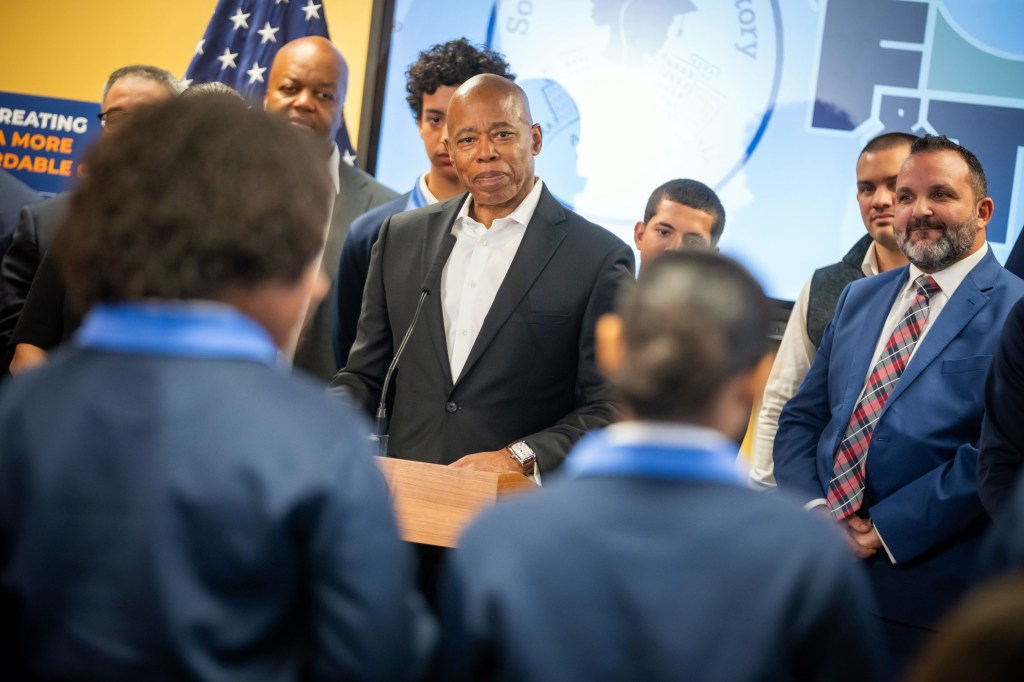From New York City to Albany, policymakers want students to build healthy financial habits before leaving school.
Last week, the New York State Board of Regents adopted a new graduation requirement in personal finance, with instruction to begin as soon as next school year. Topic areas include budgeting, saving, investing and managing debt.
For example, students might learn how to allocate their money to achieve certain life goals, according to an FAQ on the new policy. Lessons should also help kids understand credit, the potential pitfalls of debt, the impact of taxes on take-home pay and insurance policies.
“Every student in New York deserves a meaningful education that prepares them not only for college and career, but for life,” Board of Regents Chancellor Lester Young said in a statement.
The board stopped short of requiring school districts to launch a stand-alone financial literacy course — as some officials had advocated and other states have implemented. While some schools may still choose to do so, most will likely incorporate money-management lessons into core subjects like math and social studies or career programs.
The new instructional requirement is coinciding with the launch of a $25 million youth financial literacy initiative in New York City.
On Wednesday, Mayor Adams announced the next phase of its rollout: an initial group of 15 schools that will run onsite “bank branches” through Bank of America, TD Bank, Ridgewood Savings Bank and other financial institutions.
“Branches will help students open a safe, affordable bank account, lead educational workshops for students and their families, and help students start careers in banking and finance,” Adams said at the Laboratory School of Finance and Technology in the Bronx.
“This is how you break the cycle of poverty.”
Earlier this year, the now-outgoing mayor unveiled plans to put “financial educators” in about half of the city’s school districts to provide counseling, lead workshops and help develop curriculum. Those educators will be based in the 15 schools — including John Dewey High School in Brooklyn, Long Island City High School in Queens and Brooklyn Collegiate — before expanding their work to other schools in their geographic districts.
Adams’ goal is for the program to be expanded to 350,000 students by 2030. While an administration representative previously said the funding for the program is now baselined in the city budget, any future expansion will be up to the mayor-elect, Zohran Mamdani. The state’s personal finance requirement, however, may provide an additional incentive to continue the rollout.
Under the new rules adopted by the Regents, high school students must receive personal finance instruction by the end of their senior year, and in middle school by eighth grade. The requirement is scheduled to expand to elementary schools during the 2027-28 school year.
Personal finance was one of two statewide instructional requirements adopted Nov. 4. The other education mandate, on climate change, will start being phased in for the older grades during the 2027-28 school year.
Jaycke Mata, a student at the Laboratory School of Finance and Technology, is on a “business pathway” as part of the city’s career program known as “FutureReadyNYC.” He takes personal finance and business management classes, in which he’s learned about loans, investing, bank accounts and retirement plans, and used that knowledge to help teach elementary students at Public School 49 about the basics of personal finance.
Later this school year, he expects to take “Business 101” at Hostos Community College, a nearby City University campus, where he can start earning college credits while in high school.
His education has given him “more confidence in my financial decisions,” he said at Wednesday’s news conference. But recognizing there’s more work to be done, he added, “Unfortunately, not many kids my age — even adults, for that matter — can say they’re financially literate.”
